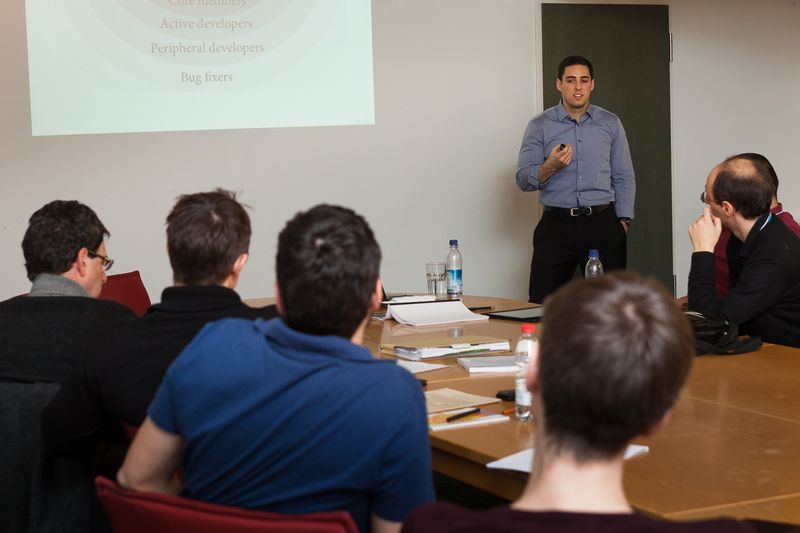Hall of Fame
Siemens awarded the "Inventor of the Year" prize to Hila Safi for her work at LFD on how quantum computing can be used to solve industrial problems. In doing so, the LFD's Hardware-Software Co-Design approach was recognised. Attention to the topic was drawn by the patents filed in connection with this work. The idea involves using a digital twin to simulate potential errors and determining the optimal location for quantum computers outside of laboratory environments.
Congrats, Hila!
Find further information at Siemens, LinkedIn, or Konstruktionspraxis.
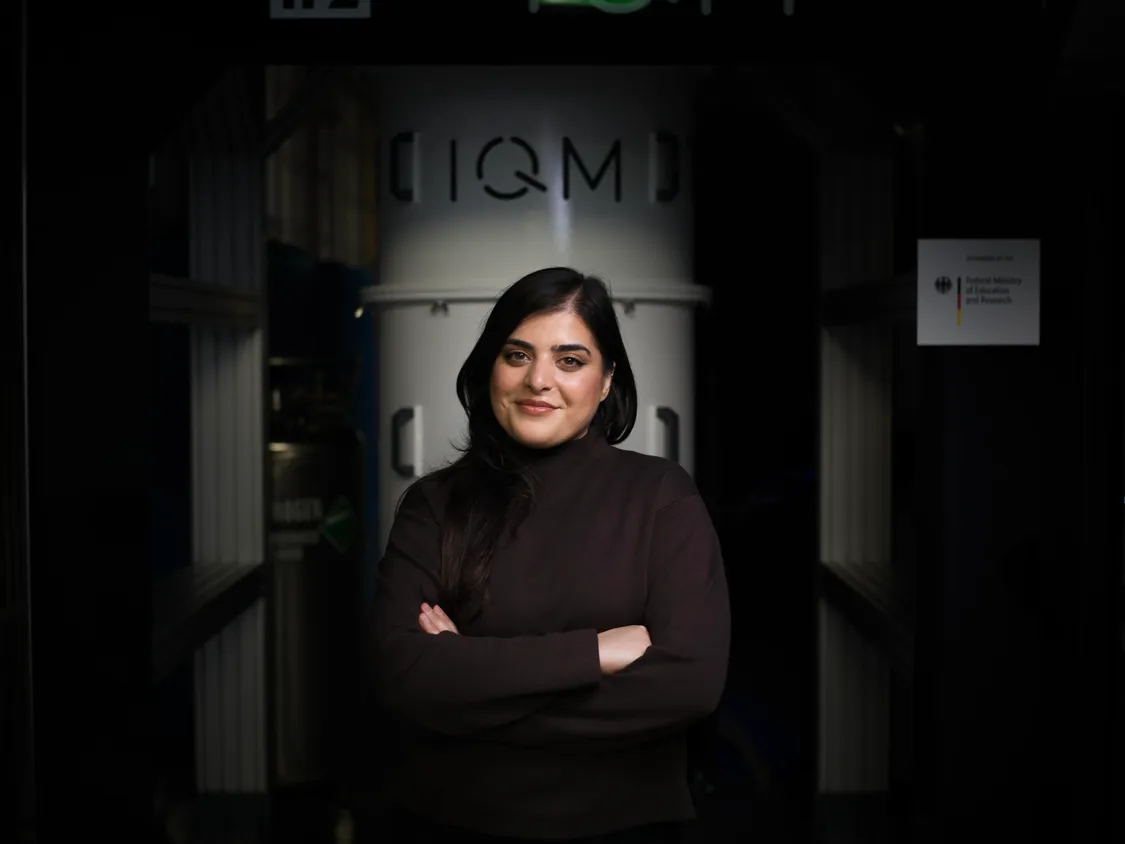
First native PhD degree at the laboratory awarded to Manuel Schoenberger!
Manuel Schönberger successfully defended his PhD thesis before an internationally acclaimed commitee comprising Prof. Dr. Immanuel Trummer from Cornell University, Prof. Dr. Kurt Stockinger from University of Zürich and Zürcher Hochschule, Prof. Dr. Jürgen Frikel from OTH as head of the committee, and Wolfgang Mauerer as Manuel's supervisor and first examiner.
Some could argue that Manuel's excellent dissertation that produced three CORE A* papers, which is likely only matched by few dissertation projects, even lead to the first native PhD that was ever awarded at OTH Regensburg, and has not only broken new ground, but set high standards for any upcoming efforts. Congrats, Manuel!
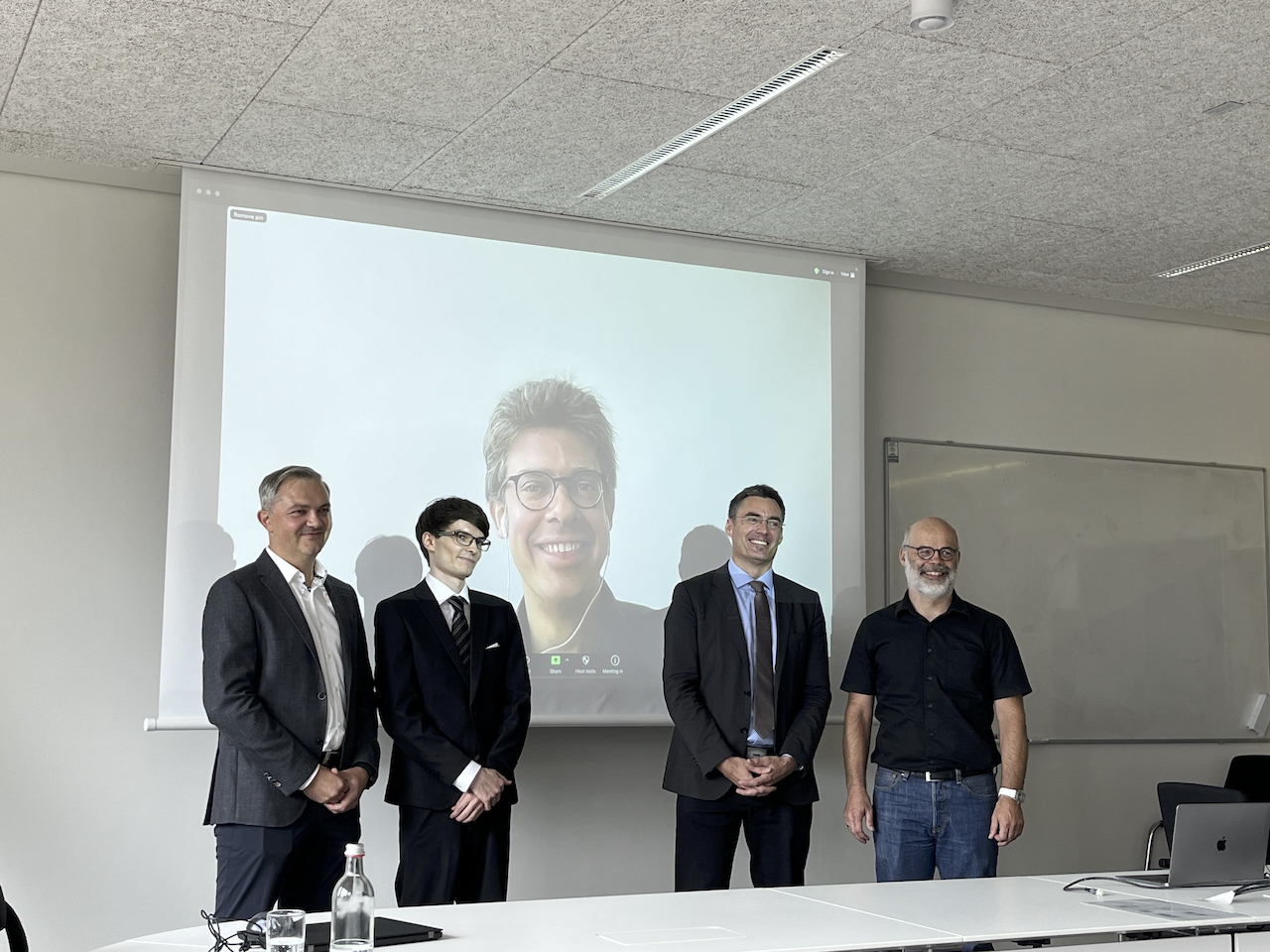
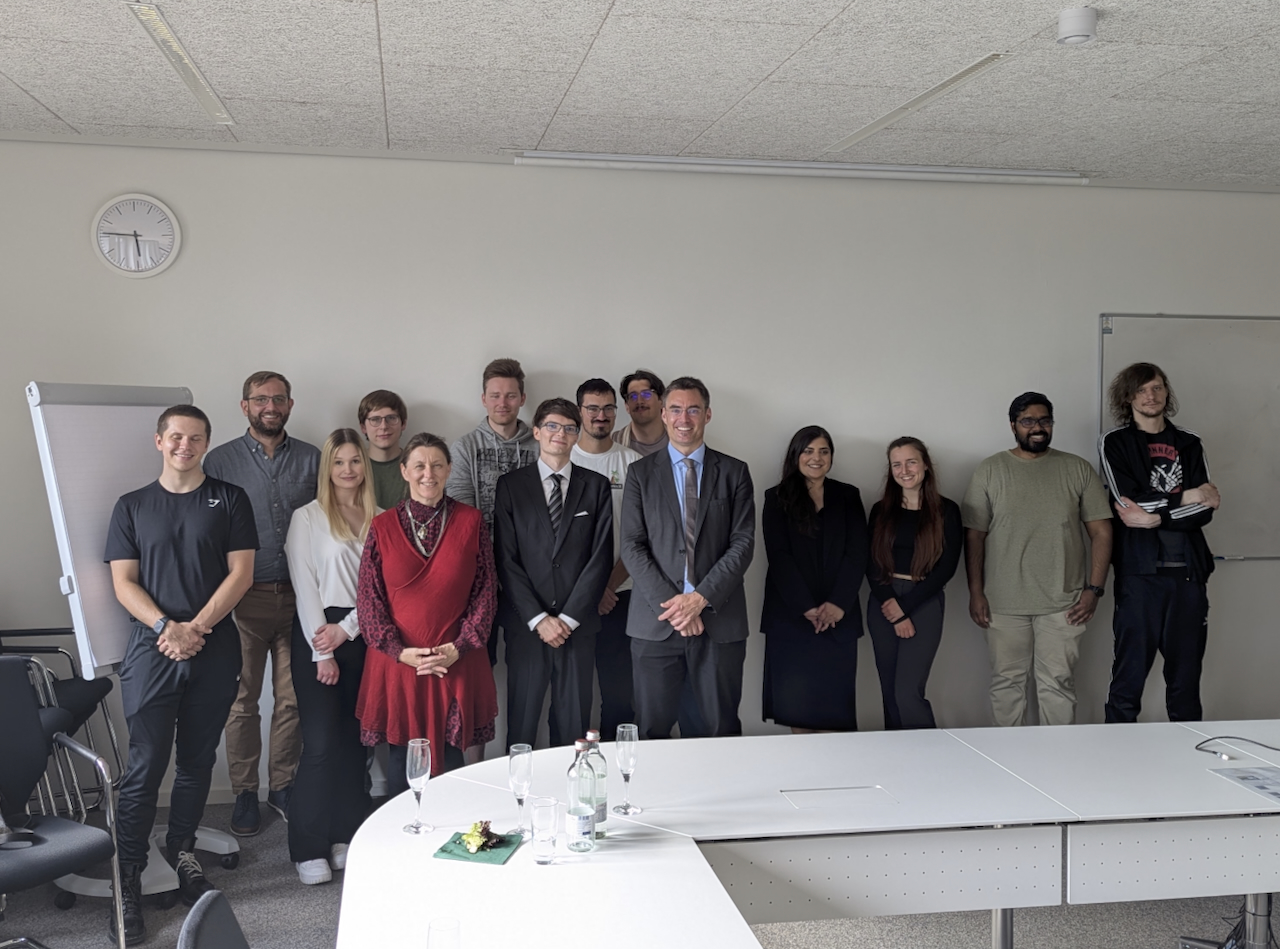
PhD Student Lukas Schmidbauer has been awarded the best student paper award at the IEEE International Conference on Quantum Software (QSW) 2025 in Helsinki!
The Quantum Software Week (QSW) is part of the IEEE Services Conference, which takes place annually. With an acceptance rate of 22.86% for 2025, it ascertains high quality standards. The conference featured a deep insight into the upcoming developments and challenges in quantum software.
In his work, Lukas Schmidbauer analyses the applicability of quantum software to industry problems and makes important contributions to automatic quantum toolchains that ultimately map high-level descriptions of problems to quantum hardware. Together with Wolfgang Mauerer, he demonstrates that the plethora of mapping approaches can be systematically broken down into (multiple) transformation steps. Furthermore, he shows that specific paths of transformations develop important properties in a predictable manner, which is an important step towards automated methods in quantum toolchains.
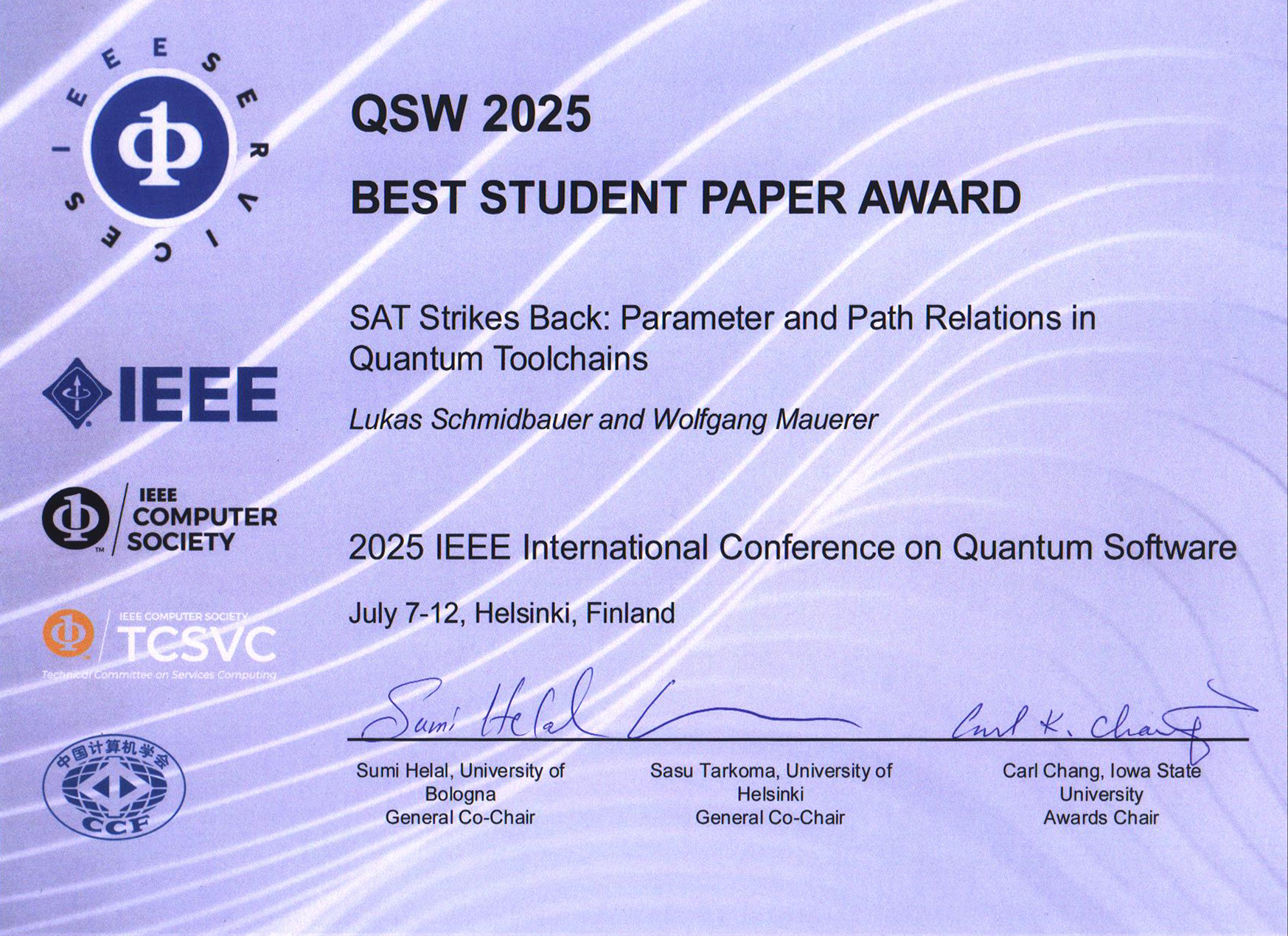
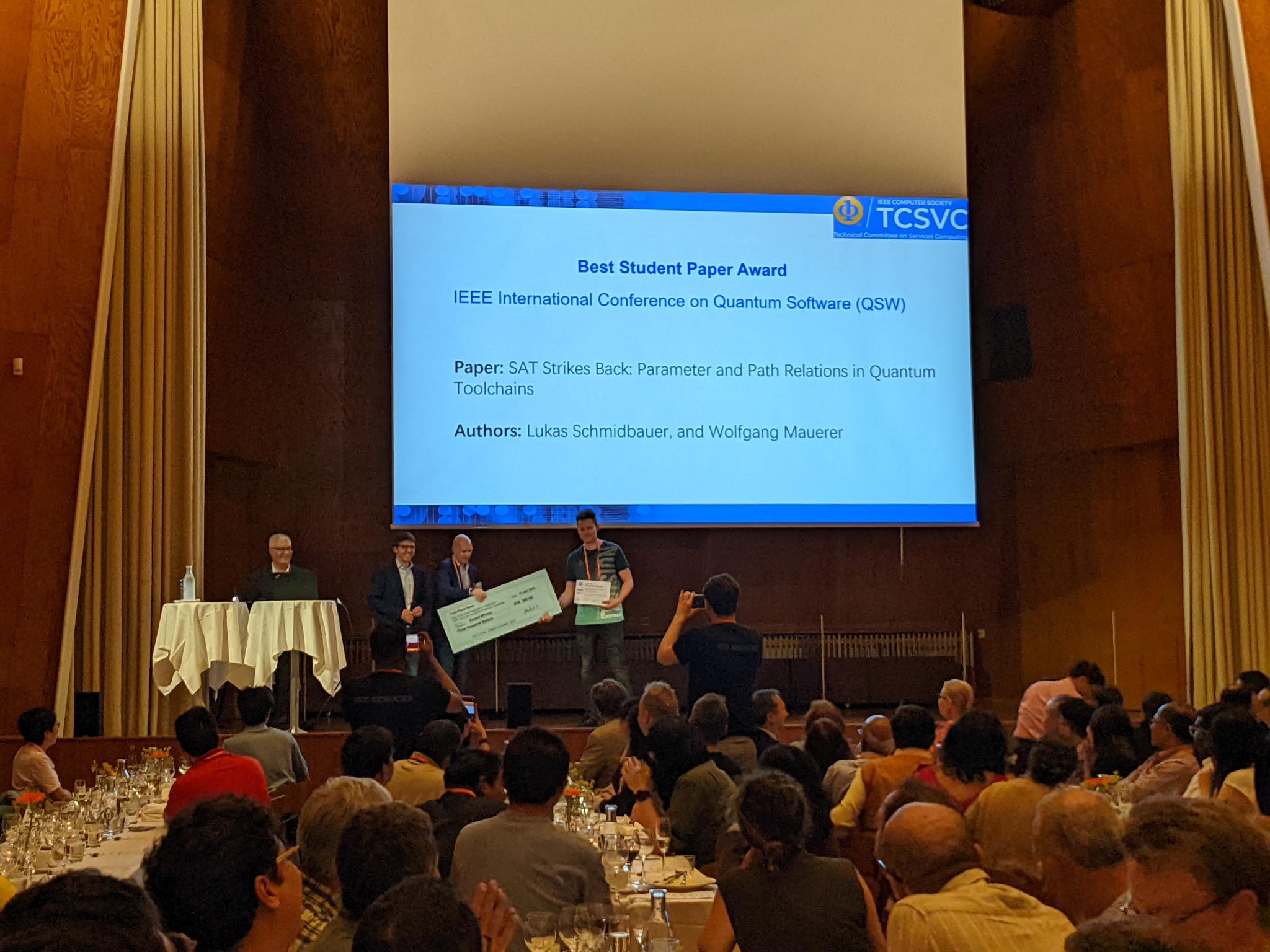
PhD student Manuel Schönberger took second place in the graduate track of this year's Student Research Competition at the CORE A* SIGMOD conference in Philadelphia!
The Student Research Competition takes place annually for various ACM conferences including SIGMOD. In the first round, students submit an extended abstract about their research. Based on the quality of their submission, a select few students from universities around the globe, including Columbia University, University of Illinois at Urbana-Champaign, Hasso-Plattner-Institut and TUM were invited to present their research posters at the SIGMOD conference. Three students were selected for the third round, where they gave a more detailed presentation on their research. In the graduate category, Manuel reached the second place, competing against Alex Yao and Sughosh Kaushik, both from Columbia University, who took first and third places respectively.
In his research, Manuel analyses the applicability of quantum computing on database query processing. The research goes beyond merely mapping problems onto quantum hardware, and moreover addresses the co-design of future quantum systems, such that they become tailor-made for database problems. Congrats, Manuel, for achieving this international recognition!
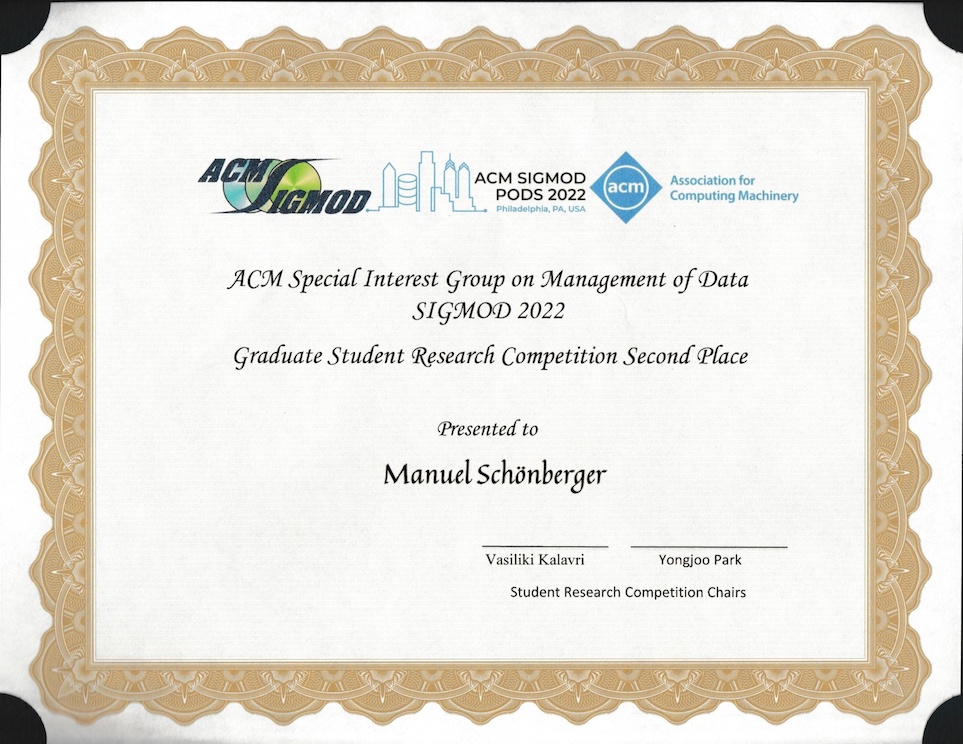
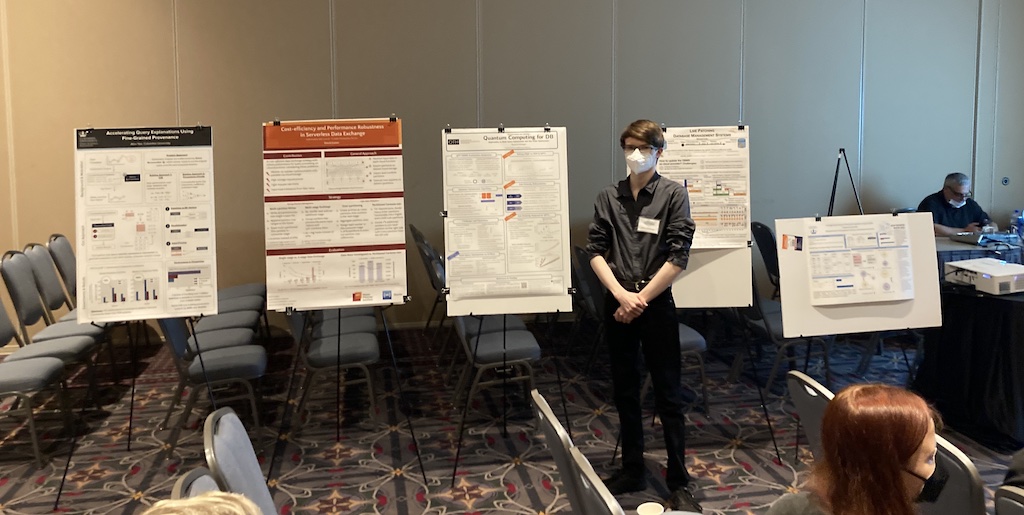
Abstract: Computer-based automation in industrial appliances led to a growing number of logically dependent, but physically separated embedded control units per appliance. Many of those components are safety-critical systems, and require adherence to safety standards, which is inconsonant with the relentless demand for features in those appliances. Features lead to a growing amount of control units per appliance, and to a increasing complexity of the overall software stack, being unfavourable for safety certifications. Modern CPUs provide means to revise traditional separa- tion of concerns design primitives: the consolidation of systems, which yields new engineering challenges that concern the entire software and system stack.
Multi-core CPUs favour economic consolidation of formerly separated systems with one efficient single hardware unit. Nonetheless, the system architecture must provide means to guarantee the freedom from interference between domains of different criticality. System consolidation demands for architectural and engineering strategies to fulfil requirements (e.g., real-time or certifiability criteria) in safety-critical environments.
In parallel, there is an ongoing trend to substitute ordinary proprietary base platform software components by mature OSS variants for economic and engineering reasons. There are funda- mental differences of processual properties in development processes of OSS and proprietary software. OSS in safety-critical systems requires development process assessment techniques to build an evidence-based fundament for certification efforts that is based upon empirical software engineering methods.
In this thesis, I will approach from both sides: the software and system engineering perspective. In the first part of this thesis, I focus on the assessment of OSS components: I develop software engineering techniques that allow to quantify characteristics of distributed OSS development processes. I show that ex-post analyses of software development processes can be used to serve as a foundation for certification efforts, as it is required for safety-critical systems.
In the second part of this thesis, I present a system architecture based on OSS components that allows for consolidation of mixed-criticality systems on a single platform. Therefore, I exploit virtualisation extensions of modern CPUs to strictly isolate domains of different criticality. The proposed architecture shall eradicate any remaining hypervisor activity in order to preserve real- time capabilities of the hardware by design, while guaranteeing strict isolation across domains.
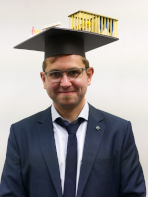
Mitchell Joblin received the dissertation award 2018 from the Univerity of Passau for his dissertation: "Structural and Evolutionary Analysis of Developer Networks"
More information on the award can be found here.
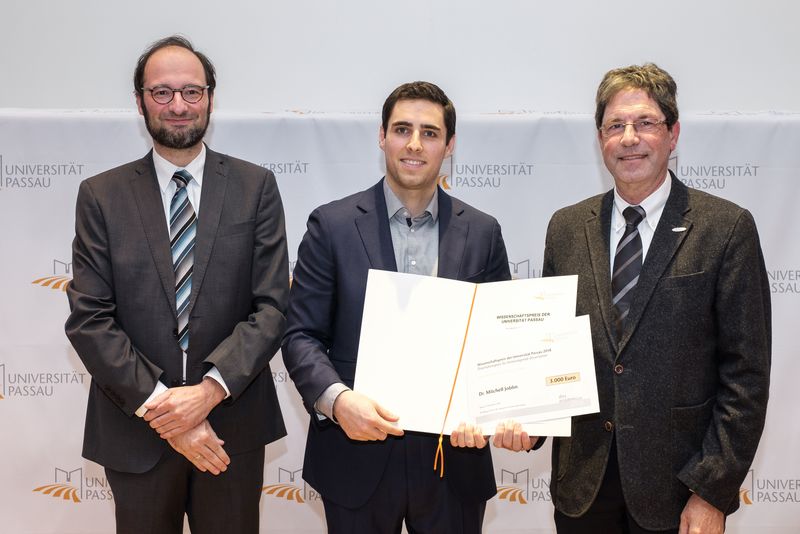
Mitchell Joblin successfully defends his PhD Thesis. Congrats!
